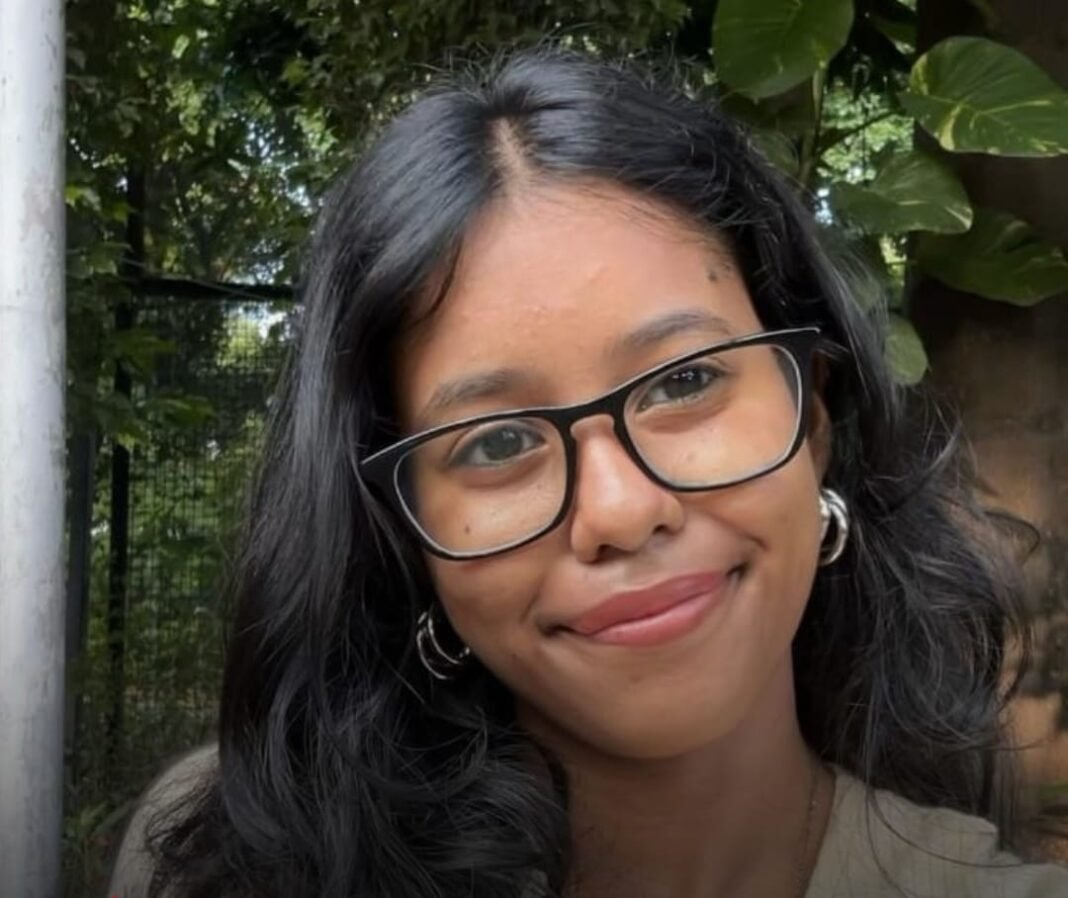The body of 19-year-old Delhi University student Sneha Debnath was found in the Yamuna River on Sunday, nearly a week after she went missing under distressing circumstances. A second-year BSc Mathematics student at Atma Ram Sanatan Dharma College, Sneha had reportedly jumped off Signature Bridge in north Delhi after sending troubling messages to her friends indicating her intentions.
According to police sources and family accounts, Sneha left her home in South Delhi early on the morning of July 7. She told her mother she was going to drop off a friend at Sarai Rohilla railway station. A cab had arrived at their residence around 5:15 a.m. However, when her family tried calling her a few hours later, her phone was found to be switched off. Concerned, the family contacted the friend she was supposed to meet—only to find out that no such meeting had taken place.
The turning point came when the cab driver disclosed that he had dropped Sneha at Signature Bridge, a spot from where she is believed to have jumped. Her family soon found a handwritten note at home that hinted at her decision to take her own life. Friends also revealed that she had sent emotional emails and WhatsApp messages earlier that morning.
Delhi Police filed a First Information Report (FIR) on July 9, two days after Sneha went missing. A search operation led by the National Disaster Response Force (NDRF) was launched the same day, covering areas around Signature Bridge and extending downstream along the Yamuna River. After days of intense search efforts, divers recovered her body near the Geeta Colony flyover, nearly 10 kilometers from where she is believed to have jumped.
DCP (South) Ankit Chauhan confirmed that eyewitnesses had reported seeing a girl standing alone on Signature Bridge around the time Sneha disappeared. “Messages she sent to her close friends and family, combined with the note found at home, indicate her state of mind and intent,” Chauhan stated.
Despite these clues, the family has voiced serious concerns over what they describe as inadequate police response and failure of infrastructure. Sneha’s elder sister, Bipasha Debnath, highlighted that none of the more than 60 CCTV cameras installed on Signature Bridge were functional on July 7. “Only a speed-monitoring camera was working, and it takes only still images of fast-moving vehicles. That’s all we had,” she said.
The family, originally from Tripura, had made multiple appeals on social media for help, posting pictures and details in the hope of locating Sneha. Her father, a retired Army officer who served for over 30 years, is currently undergoing dialysis for chronic kidney failure. “Despite his condition, my father was out there, barely able to walk, speaking to strangers on the bridge, asking if anyone had seen his daughter,” Bipasha added emotionally.
Sneha’s friends shared that she had been emotionally distressed in recent months but never spoke clearly about what was bothering her. Some mentioned she appeared withdrawn and had made subtle comments suggesting she was struggling with something deeply personal.
While the police are still investigating the reasons behind her tragic decision, the incident has raised serious concerns about the mental health support available to students, especially those living away from home and facing academic or personal stress. Delhi University students and faculty have expressed shock and sorrow over the loss, calling for greater mental health awareness and support systems on campus.
Authorities have yet to announce whether any action will be taken against those responsible for the non-functional surveillance at Signature Bridge. The family is demanding accountability and is planning to file a formal complaint with higher authorities to ensure such lapses do not result in future tragedies.
Sneha Debnath’s untimely death has left a community in mourning and raised pressing questions about student mental health, infrastructure oversight, and the responsiveness of law enforcement during emergencies.








